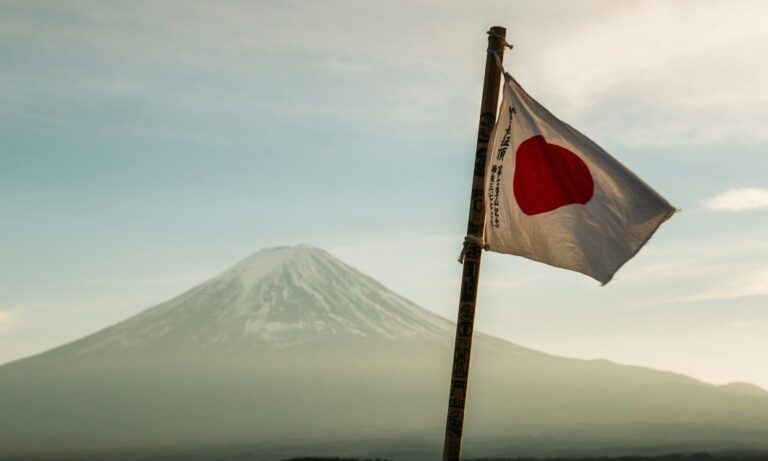Late last year, Japan took a major step toward cannabis reform by approving a bill to revise its 75-year-old cannabis regulation law.
After passing legislation in November, Japanese authorities are currently finalizing the details of these reforms and the industry is preparing for an announcement from the Ministry of Health, Labor and Welfare (MHLW) expected to set new standards for THC levels. . Later this month.
This public comment is expected to take place ahead of a final formal decision on the new framework for the country's already growing hemp and CBD industry in the summer.
Dr. Yuji Masataka, Japan's first medical cannabis expert, told Business of Cannabis: “Given the legal reforms scheduled for this summer in Japan, the impact on the CBD market is expected to be significant.”
What do you expect to change?
Japan already has an established and thriving CBD market, with over 150 companies currently believed to be importing, manufacturing and distributing a variety of CBD products across the country.
Despite this, there are still strict restrictions on the products that can be bought and sold. This includes a provision that CBD and other hemp-derived products do not contain observable levels of THC, meaning the market is dominated by isolated CBD products.
This is expected to be an important change in future legislation. According to a statement from the Ministry of Health, Labor and Welfare in February 2024, “To prevent the occurrence of health and hygiene hazards, maximum residue limits for trace amounts of THC in products derived from cannabis plants must be established.”
Additionally, Dr. Masataka said the current regulation, which only allows the import of CBD products derived from the plant's stems and seeds, will be “eliminated.”
“Standards are expected to be published this summer, and the standard (THC) level for the final product is said to be around 0.02%,” they continued.
market opportunity
According to Dr. Masataka, there is frequent debate about whether CBD will be allowed to be distributed in food once it is approved as a prescription drug. Currently, the Ministry of Health, Labor and Welfare does not appear to have any intention of regulating CBD as a food, but future high-profile issues may spark new debate about regulation.
If regulations are eased through legal reforms, we can expect not only an increase in consumer confidence but also some major changes in the market.
In contrast to Europe, where there are new food regulations, Japan will have a unique position in the market if it continues to allow retail stores to sell CBD and other cannabinoid edibles such as CBG and CBN after the announcement of new THC regulations. There is a possibility.
This will significantly diversify the market, with new products entering the market such as “CBD-infused foods, beverages, and even cosmetics,” but Dr. Masataka believes that reduced stigma and legal clarity will help. It expects to see a “rapid increase in demand.”
Listed companies will also begin to enter the sector “in an attempt to capitalize on rising demand and potential profitability,” which could lead to “increased investment, expansion of distribution networks, and increased competition within the industry.” .
“These changes are expected to reduce the price of domestic CBD products, which will be positive for the expansion of the CBD market.”
Japan's preferences for CBD products are very different from those in Europe and the United States. Various vaping products containing cannabinoids are very popular in Japan, as flower containing not only THC but also CBD is prohibited in Japan. This trend is likely to intensify as the Japanese government seeks to create new penalties for cannabis use. (Currently, possession is illegal, but use is not.)
The new law will also allow the use of cannabis-derived prescription drugs by classifying cannabis alongside opioids and other narcotics, opening the door to a medical cannabis industry that goes beyond pharmaceuticals like Epidiolex. There is a possibility that it will open.
New regulations call for more research and other efforts aimed at opening up the market, and CBD could enter the medical field.
In other areas, the new law considers differentiating between high-THC medical marijuana and hemp cultivation licenses.
The latter is culturally important in the country, and it is hoped that laws will be relaxed to encourage domestic cultivation and Japan's cannabis industry.
While the proposed amendment would encourage domestic cultivation and theoretically allow CBD products to be manufactured in Japan, Dr. Masataka believes the import market will continue to thrive.
“Unfortunately, I don't think it would be profitable to grow hemp, extract CBD, and commercialize CBD products in Japan.”
While the industry waits for details of Japan's new cannabis framework to be worked out, the country's reform efforts, historically one of the most conservative when it comes to cannabis, send a clear message to the region. It turns out. Cannabis offers both medical and economic opportunities if regulations allow its widespread use.
Dr. Yuji Masataka is a graduate of Kumamoto University School of Medicine. In 2016, he met Dr. Jeffrey Hagenrather, a medical cannabis expert, in California and decided to become Japan's first medical cannabis specialist. While working at the Department of Neurology at Kumamoto University, in 2017 he founded Green Zone Japan, a specified non-profit organization with the aim of raising awareness about medical cannabis, as its representative director. Currently, he also serves as vice president of the Japanese Society for Clinical Cannabinoid Research.
Dr. Masataka also acts as a key opinion leader for Astrasana Japan Co., Ltd., and is proud to support CBD products, which are not only widely accepted, but also highly valued for their potential health benefits. We provide support to create a progressive and inclusive environment in Japan. Valuable market opportunity.

